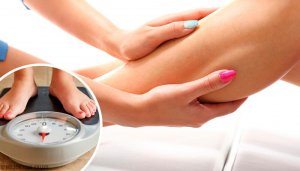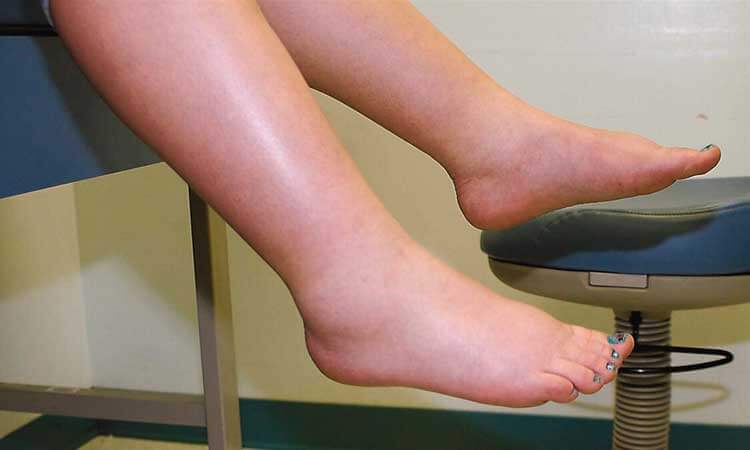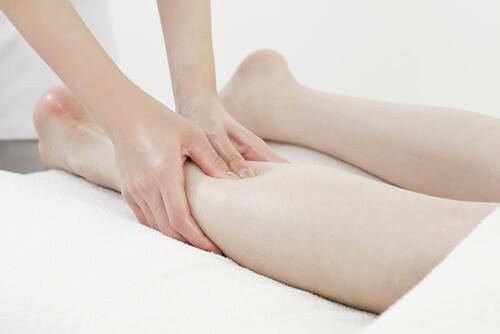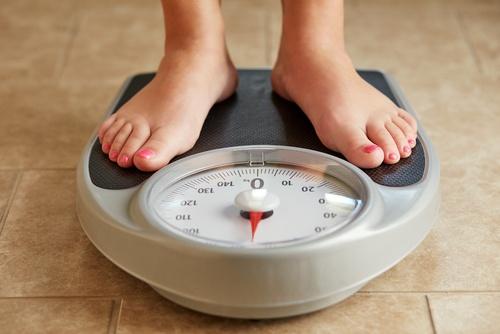What Are the Symptoms of Fluid Retention?

The symptoms that indicate fluid retention are many and clear. This is a common condition among women over the age of 40 and occurs when the body begins to accumulate fluids it should’ve eliminated otherwise.
The symptoms will be milder or more severe depending on how much water your body is retaining. If you feel bloated, you’re having trouble losing weight, or you’ve even put on a few pounds, it may well be the result of fluid retention.
As a precaution, it’s best to consult with a medical professional, especially if swelling occurs very suddenly, or if it may be the result of one of the conditions mentioned above.
In the meantime, we want to explain some of the typical symptoms of water retention, and give you some tips to help prevent it in future.
Causes of fluid retention
As you may have already heard, we’re mainly composed of fluids so it’s normal to have a certain amount of in our tissues. However, it becomes a problem when it exceeds normal levels, or rather, this happens because there’s already a problem.
Edema, as it’s also known, is a condition characterized by fluid retention. It’s important to be clear in that edema isn’t a disease but a sign that something’s wrong in your body.
Often times people retain fluids due to overweight, a sedentary lifestyle, menstruation and a poor diet with excess sodium. It also occurs in specific conditions such as menopause and pregnancy.
Furthermore, it could also be due to a dilation of the veins due to the effect of heat. However, fluid retention is caused by circulatory problems, kidney or liver malfunction, or even heart failure when it’s pathological.
Want to know more? Read: 5 Diuretic Infusions to Eliminate Liquids
Symptoms of fluid retention
These may vary depending on the location and the amount of fluids you’re retaining. In general, the following most frequently indicate that you’re retaining fluids.
Swelling

- Look at your feet and legs. These are the first places where you can detect water retention. Unusually heavy, swollen and tired legs are a good warning sign.
- Swollen ankles are another sign of water retention. Your ankles are particularly sensitive to these ailments, so it’s common for them to swell. It should be easy to notice, as your shoes will feel tighter than normal, to the point where you may even struggle to put them on.
- There are other signs on the hands as well. The most common is the feeling that the rings are tight or that it’s difficult to put them on and take them off. The same happens in the case of bracelets and wrist watches, but in this case the fluid retention will be marked.
- A puffy face can be another symptom. It’s usually easy to spot changes in the face, especially around the eyes and cheeks.
Increased waistline
When it comes to swelling, the abdomen is usually one of the most affected areas. And in this area the swelling is usually very striking, increasing even throughout the day. So take a tape measure and keep up with your measurements.
Leg heaviness
Along with swelling of the lower extremities, another sign that can indicate if you’re retaining fluids in your body is the feeling of heaviness in the legs.
You may find it more difficult to walk or, when you return home, you may feel very tired, as if you have walked a long way or have been on your feet all day.
Joint pain or inflammation
The pain or discomfort will be limited to a specific point between two bones, ie. a joint. The pain will be constant, and usually appears after spending a long time on your feet, as stated in this article from the American Society of Clinical Oncology.
Skin indentations

Even if there is no visible swelling, you may notice the appearance of other types of marks on your skin.
For example, if you notice visible marks after wearing socks or stockings for a few hours, then your legs or ankles are probably swollen.
Weight gain

People tend to gain weight when fluids aren’t properly eliminated and accumulate in the body. You may be retaining fluids if you exercise regularly, aren’t eating more than usual, and have gained a few pounds.
This can also happen as a result of changes in your metabolism. This can often happen during menopause, as shown in this study by the pharmaceutical company CINFA. It’s best to consult with a doctor to identify the cause.
Weigh yourself on a daily basis. Try to do it as soon as you wake up, before eating breakfast. If you notice any changes in weight, or you feel swollen or bloated, it may be the result of water retention or some metabolic change.
Tips for preventing fluid retention
- Maintain a low-sodium diet. Salty and over-seasoned foods make it more likely to suffer from water retention, as confirmed in this study by the Diego Portales University in Chile.
- Don’t eat junk food. Due to its high additive content, junk food can be very harmful to your health. Plus, they’re usually high in salt, which can promote water retention.
- Certain foods can help you relieve fluid retention, mainly fruits and vegetables with a high water content.
- Avoid a sedentary lifestyle and start exercising regularly. Physical activity allows your body to eliminate toxins. Toxins can cause the body to retain more fluid than normal, as shown in this investigation by the Austral University of Chile.
- If you work at a desk all day, try to get up every 30 minutes. This may help to prevent water retention in your legs, feet, and ankles. While there is scientific evidence to support this, it won’t hurt to give it a try.
A common problem that requires attention
Fluid retention is a common problem, especially in middle-aged women. If you think you’re suffering from this problem, it’s best to see a doctor and tell them about your symptoms, so that they can prescribe the best course of treatment. Use some of these tips in the meantime, they might help.
All cited sources were thoroughly reviewed by our team to ensure their quality, reliability, currency, and validity. The bibliography of this article was considered reliable and of academic or scientific accuracy.
- Besharat, S., Grol-Prokopczyk, H., Gao, S., Feng, C., Akwaa, F., Gewandter, J (2021) Peripheral edema: A common and persistent health problem for older Americans. Plos one; 16(12): e0260742. https://www.ncbi.nlm.nih.gov/pmc/articles/PMC8675752/
- Gasparis, A., Kim, P., Dean, S., Khilnani, N., Labropoulos, N. (2020) Diagnostic approach to lower limb edema. Phlebology; 35(9): 650–655. https://www.ncbi.nlm.nih.gov/pmc/articles/PMC7536506/
- Harvard Health Publishing (2022). Edema. Consultado el 28 de febrero de 2024. https://www.health.harvard.edu/a_to_z/edema-a-to-z
- Harvard Health Publishing (2019). Fluid retention: What it can mean for your heart. Consultado el 28 de febrero de 2024. https://www.health.harvard.edu/heart-health/fluid-retention-what-it-can-mean-for-your-heart
- Institute for Quality and Efficiency in Health Care IQWiG (2016) Causes and signs of edema. InformedHealth.org. Consultado el 1 de marzo de 2024. https://www.ncbi.nlm.nih.gov/books/NBK279409/
- McGraw Hill Medical (s/f). Dolor y edema de las articulaciones. McGraw Hill Medical. Consultado el 1 de marzo de 2024. https://www.ncbi.nlm.nih.gov/books/NBK430975/
- Patel SK, Surowiec SM. (2023).Venous Insufficiency. StatPearls. Consultado el 1 de marzo de 2024. https://www.ncbi.nlm.nih.gov/books/NBK430975/
This text is provided for informational purposes only and does not replace consultation with a professional. If in doubt, consult your specialist.








